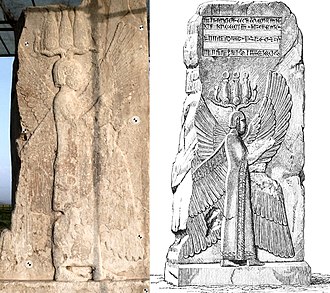Cyrus the Great
Cyrus the Great was the founder of the Persian Empire and a renowned conqueror and statesman. He lived in the 6th century BCE and ruled from 559 to 530 BCE. Cyrus was born in the province of Parsa (modern-day Fars) in southwestern Iran and was the son of the Persian king Cambyses I.
 Cyrus inherited the throne of Persia after the death of his father and quickly began expanding his empire through military conquests. He conquered the neighboring kingdoms of Media, Lydia, and Babylon, among others, and established a vast empire that stretched from the Indus River in the east to the Aegean Sea in the west.
Cyrus inherited the throne of Persia after the death of his father and quickly began expanding his empire through military conquests. He conquered the neighboring kingdoms of Media, Lydia, and Babylon, among others, and established a vast empire that stretched from the Indus River in the east to the Aegean Sea in the west.
Despite his reputation as a conqueror, Cyrus was known for his leniency and magnanimity towards the people he conquered. He is famous for allowing the Jews to return to their homeland and rebuild the Temple in Jerusalem after their captivity in Babylon. This act is celebrated in the Old Testament book of Ezra.
Cyrus also implemented a number of reforms that improved the administration and governance of his empire. He introduced a system of satrapies, or provinces, each governed by a satrap, or governor, who reported directly to the king. He also promoted religious tolerance and encouraged the free practice of religion throughout his empire.
Cyrus died in battle while fighting against the Massagetae, a tribe from the Central Asian steppes. Despite his death, his legacy lived on, and he is still revered as one of the greatest conquerors and statesmen in Persian history.
- Hits: 2206